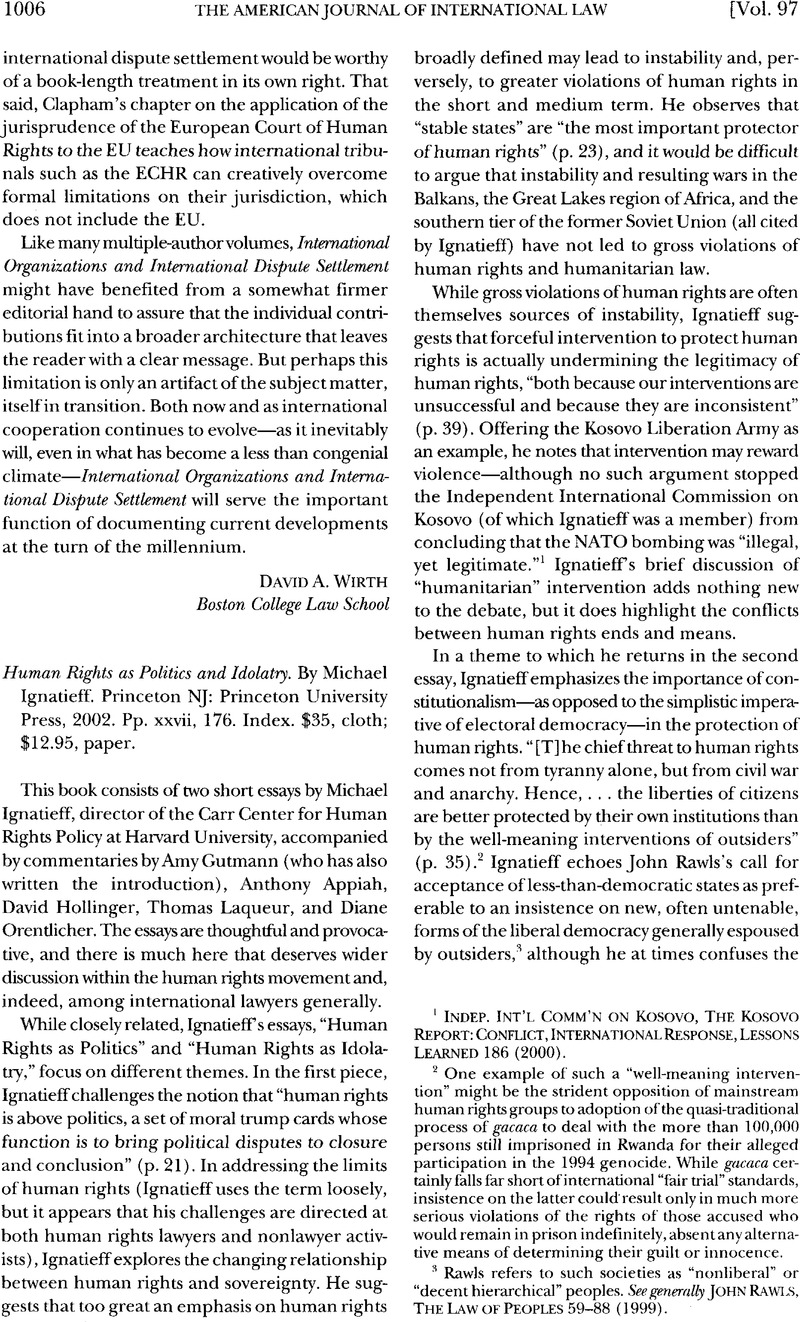No CrossRef data available.
Published online by Cambridge University Press: 27 February 2017

1 Indep. Int'l Comm'n On Kosovo, The Kosovo Report: Conflict, International Response, Lessons Learned 186 (2000).
2 One example of such a “well-meaning intervention” might be the strident opposition of mainstream human rights groups to adoption of the quasi-traditional process of gacaca to deal with the more than 100,000 persons still imprisoned in Rwanda for their alleged participation in the 1994 genocide. While gacaca certainly falls far short of international “fair trial” standards, insistence on the latter could result only in much more serious violations of the rights of those accused who would remain in prison indefinitely, absent any alternative means of determining their guilt or innocence.
3 Rawls refers to such societies as “nonliberal” or “decent hierarchical” peoples. See generally John Rawls, The Law Of Peoples 59-88 (1999).
4 Consider, for example, Ignatieff s support (p. 34) for strengthening multilateral and regional organizations and his approving reference to the work of the Organization for Security and Co-operation in Europe's high commissioner on national minorities.
5 A distinction is sometimes made between a “thin” view of human rights, which emphasizes only the most basic rights found primarily in the International Covenant on Civil and Political Rights, and a “thick” interpretation of rights, which reinforces the entire panoply of civil, political, economic, social, and cultural rights, as well as those rights adopted to protect particularly vulnerable groups, such as racial minorities, women, children, refugees, and migrant workers. Ignatieff holds that “[h]uman rights can command universal assent only as a decidedly ‘thin’ theory of what is right, a definition of the minimum conditions for any kind of life at all” (p. 56).
6 Ignatieff here reflects the humanism of one of Camus's heroes in The Plague: “All I maintain is that on this earth there are pestilences and there are victims, and it's up to us, so far as possible, not to join forces with the pestilences.” Al.BF.RT Camus, The Plague 253-54 (Stuart Gilbert trans., Vintage International 1991) (1948). Of course, people may well disagree on what they consider a pestilence.
7 See, e.g., Jack Donnelly, Cultural Relativism and Universal Human Rights, 6 HUM. RTS. Q. 401 (1984).